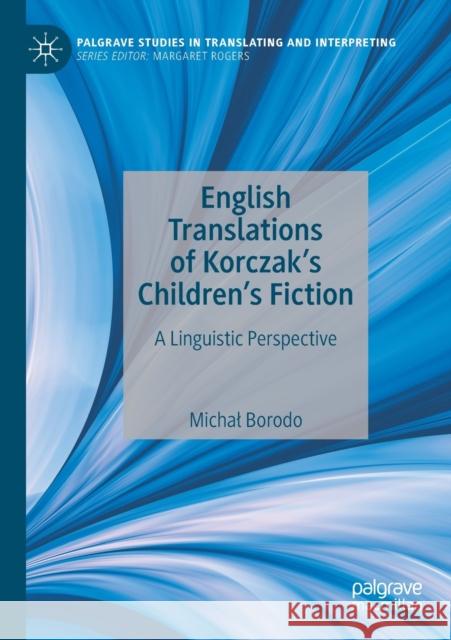English Translations of Korczak's Children's Fiction: A Linguistic Perspective » książka
topmenu
English Translations of Korczak's Children's Fiction: A Linguistic Perspective
ISBN-13: 9783030381196 / Angielski / Miękka / 2021 / 247 str.
English Translations of Korczak's Children's Fiction: A Linguistic Perspective
ISBN-13: 9783030381196 / Angielski / Miękka / 2021 / 247 str.
cena 342,95
(netto: 326,62 VAT: 5%)
Najniższa cena z 30 dni: 327,68
(netto: 326,62 VAT: 5%)
Najniższa cena z 30 dni: 327,68
Termin realizacji zamówienia:
ok. 16-18 dni roboczych.
ok. 16-18 dni roboczych.
Darmowa dostawa!
Kategorie:
Kategorie BISAC:
Wydawca:
Palgrave MacMillan
Seria wydawnicza:
Język:
Angielski
ISBN-13:
9783030381196
Rok wydania:
2021
Wydanie:
2020
Numer serii:
000793486
Ilość stron:
247
Waga:
0.32 kg
Wymiary:
21.01 x 14.81 x 1.4
Oprawa:
Miękka
Wolumenów:
01
Dodatkowe informacje:
Wydanie ilustrowane











